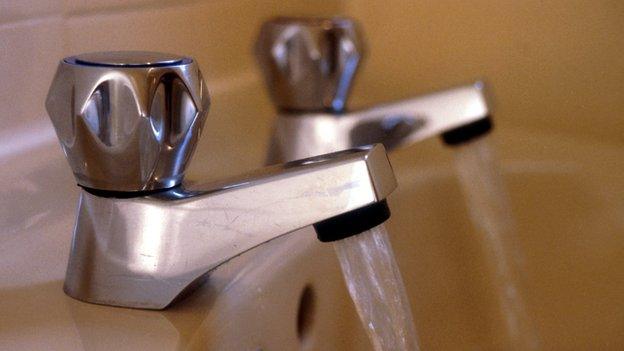Water charges: Almost 100 protests across Republic of Ireland
- Published
Almost 100 separate demonstrations took place in towns and cities across the Republic of Ireland on Saturday
Tens of thousands of people have taken part in nationwide protests against the introduction of water charges in the Republic of Ireland.
Almost 100 separate demonstrations were staged in towns and cities on Saturday, over charges introduced last month.
The controversial austerity measure is a key part of the government's plan to pay back the international financial bailout the state had to seek in 2010.
It was one of the largest ever mass protests over Irish government policy.
'Had enough'
Irish police said they were not able to provide official estimates of the numbers attending rallies and marches across the state.
However, Irish state broadcaster, RTÉ, reported that more than 120,000 people attended demonstrations throughout the day.
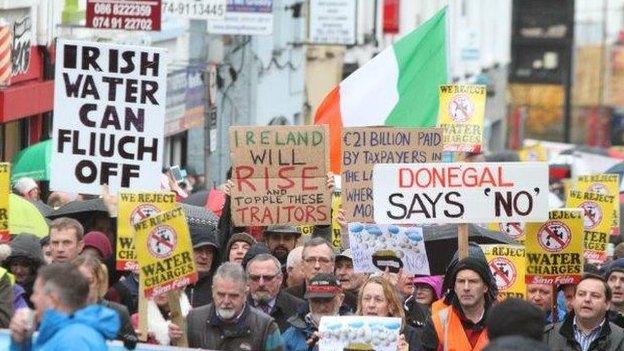
Protests took place in towns and cities across the Republic, including Letterkenny in County Donegal, where more than 8,000 people are believed to have taken to the streets
About 20 protests were staged in Dublin, culminating in a crowd of about 10,000 who gathered outside the General Post Office (GPO) building in the city centre.
RTÉ estimated that another 10,000 protesters took to the streets of Cork city, while in excess of 8,000 people marched in both Letterkenny and Drogheda.
Demonstrations in Limerick, Waterford, and Dundalk were estimated to have attracted about 5,000 people each.
'Already free'
Thousands of people also took part in smaller protests in Sligo, Navan, Wicklow, Galway, Kilkenny, Wexford, Ashbourne, and Longford, as well as other towns and villages.
Some of the hundreds of people attending a protest in Ringsend, Dublin, told the BBC they do not believe they should pay charges for something that is already free and paid for out of general taxation.
Other protesters said they were opposed to the bonus culture in Irish Water - the company established last month to provide the service.
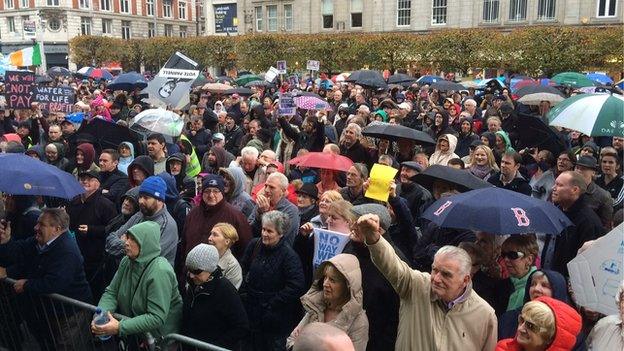
The introduction of water charges has caused widespread public anger across the Republic of Ireland
In Dublin, Martin Kennedy said he was taking part in the protests because he wanted to send a message to the government.
"Primarily, people are here today about water charges, but really it's about austerity.
"We've simply had enough," he said.
Worried
Anita Stanley, who attended a demonstration in the capital with her mother, also expressed her frustration at the government's policy.
"I'm a young widow, like my mum Ann, and we're here just to say we've had enough," she said.
"We can't afford to give any more."
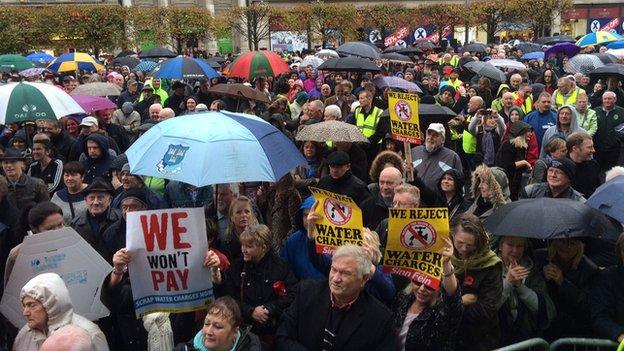
Protesters gathered outside the General Post Office (GPO) building in central Dublin for a mass rally
Éamonn Campbell, renowned as a guitarist with Irish folk music group The Dubliners, was also among the protesters.
"It is not just about water charges, it is about all these taxes that have been forced by the greedy, both in Ireland and Europe, and paid for on the backs of the needy," he said.
'Serious mistakes'
Campaigners who organised some of the demonstrations disagreed with the state broadcaster's estimates and claimed the total number of people who protested was actually closer to 133,000.
Despite the absence of official figures, the Fine Gael/Labour coalition government is clearly worried about the scale of opposition.
A junior minister at the Irish Department of Jobs Enterprise and Innovation, Ged Nash, told RTÉ radio that "some serious mistakes" had been made in the establishment of Irish Water.
"I think if we were starting again we would have a much longer timeframe to establish what is a very important public utility," Mr Nash said.
.jpg)
Hundreds of people attended a protest in Dublin's Ringsend - just one of almost 100 demonstrations across the state
The minister added that the government would respond the public concern over water charges.
"We acknowledge people's anxieties right across the country about issues regarding affordability for water charges and we're prepared to address those," Mr Nash added.
Meanwhile, Irish Deputy Prime Minister (Tánaiste), Joan Burton, said the charges will be modest and capped.
Households are due to receive their first water bills in January 2015.
It is the second time in weeks that members of the public have staged mass protests over the controversial government policy.
Last month, tens of thousands of people marched through Dublin to show their opposition.
.jpg)
The government said it would respond to public concern about water charges
- Published1 November 2014
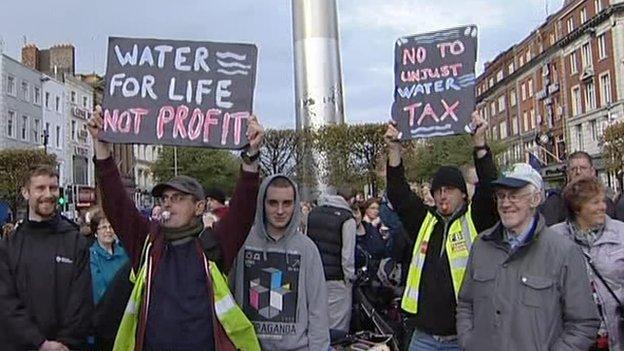
- Published1 October 2014
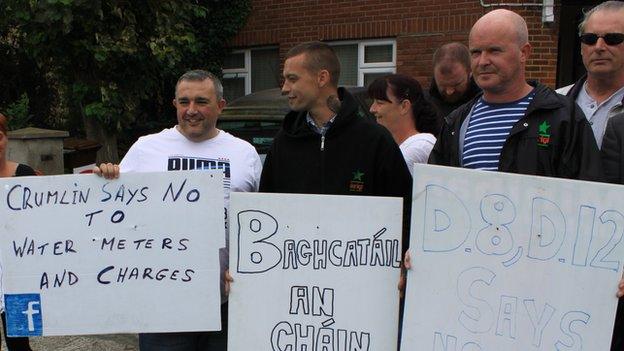
- Published30 September 2014
